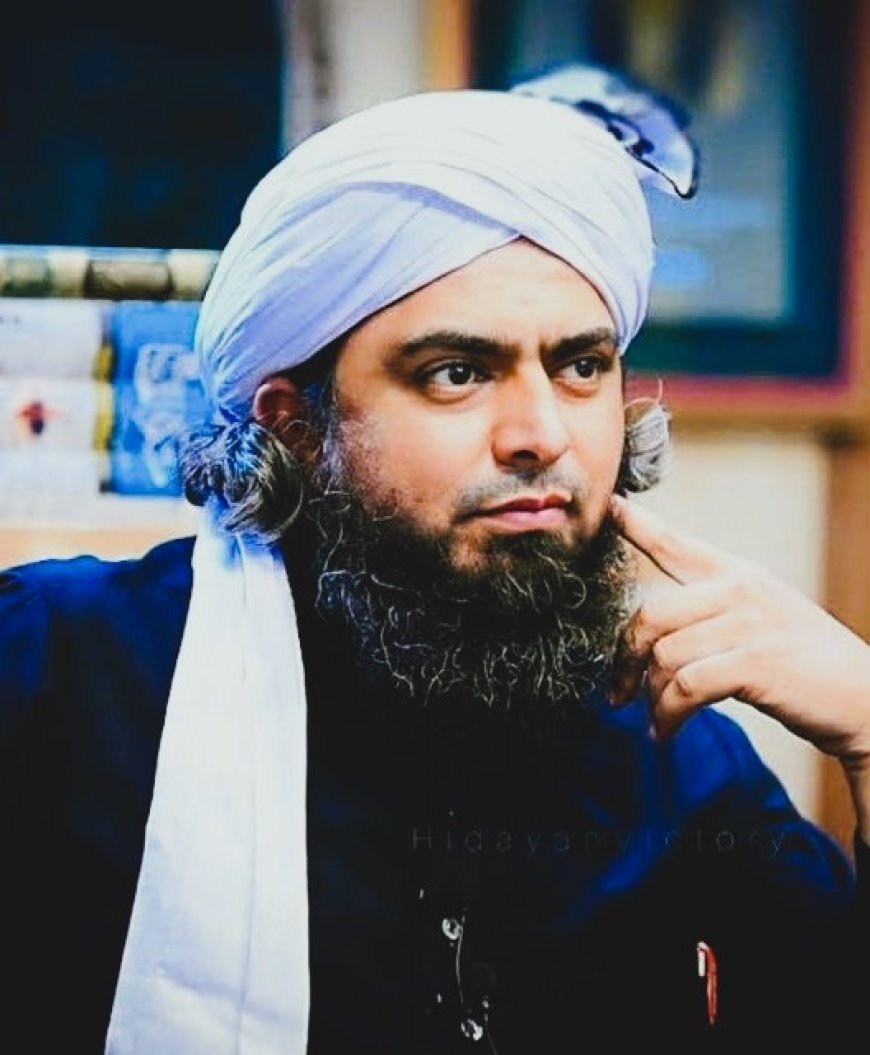Muhammad Ali Mirza Arrest: What Made Him an Enemy
Engineer Muhammad Ali Mirza, a prominent Islamic scholar with a substantial online following, has been detained by Jhelum police under Section 3 of the Maintenance of Public Order (MPO) ordinance. The arrest, which occurred on Tuesday, August 26, 2025, led to his transfer to Jhelum District Jail and the sealing of his academy. Officials stated the action was taken to "maintain public order" following a complaint from various religious groups regarding his recent remarks. This isn't his first brush with the law; he was also arrested in May 2020 on charges of hate speech but was later released on bail.

On the 13th of October, 2024, Muhammad Ali Mirza was arrested by police in Jhelum, Pakistan, and his academy was sealed. The arrest followed complaints from various religious groups, leading to his detention under Section 3 of the Maintenance of Public Order (MPO). This section of law allows authorities to detain individuals to prevent actions that could disrupt public peace.
Mirza, a qualified mechanical engineer, has built a massive online following by delivering lectures that often question sectarian divisions and what he views as misinterpretations of religious texts. His direct and unfiltered approach has made him a divisive figure. While his supporters commend him for promoting a more logical and rational understanding of Islam, his detractors accuse him of blasphemy and disrespecting religious figures. The controversy surrounding him is not new; he has faced prior arrests and even survived an assassination attempt in 2021.
This recent arrest is not just a legal matter but a profound commentary on the delicate balance between freedom of speech and public order, especially in a religiously conservative society. For Mirza's followers, his arrest is a clear case of a truth-teller being silenced by those who feel threatened by his message. The situation highlights how, for some, the pursuit of truth can lead to significant opposition and, in this case, legal repercussions.
Why He Has Made Other Scholars an Enemy
Muhammad Ali Mirza's controversial nature stems from his bold and often unfiltered critique of traditional religious figures and established sectarian narratives. His approach, which relies on his own interpretation of the Quran and Sunnah, has put him at odds with a number of religious scholars and groups in Pakistan.
Criticism of Traditional Teachings
Mirza's central philosophy is a rejection of what he sees as sectarian divisions and outdated religious norms. He urges his followers to prioritize the Quran and authentic Hadith, rather than blindly following the interpretations of specific sects or scholars. This stance directly challenges the authority of many traditional clerics who are seen as the gatekeepers of religious knowledge within their respective schools of thought. His critics accuse him of using derogatory language against Muslim saints and of misinterpreting religious texts, which they argue is an act of blasphemy.
Specific Controversies and Accusations
Mirza has been involved in several high-profile controversies that have fueled animosity with other scholars:
-
"Chhokra" Comment: A major point of contention arose from his use of the word "chhokra," a slang term for a young boy, when quoting the opponents of the Prophet Muhammad (PBUH). While Mirza maintains he was merely quoting what others said about the Prophet, religious figures like the late Pir Afzal Qadri have declared him "wajibul qatl" (worthy of being killed) for what they see as a blasphemous remark.
-
Views on Historical Figures: Mirza's public critique of certain historical figures revered by a number of Sunni Muslims, such as Mu'awiya I, has made him a controversial figure. He has engaged in public debates with scholars like Mufti Tariq Masood over these issues.
-
The Ahmadiyya Issue: He has also faced legal and social pressure for his remarks on the status of Ahmadis in Pakistan. His critics claim he downplayed their non-Muslim status, a sensitive issue in the country. A case of blasphemy was registered against him in April 2023 under this charge.
-
Rejection of Sectarianism: Mirza's call for Muslims to pray behind imams of all sects, and his general opposition to sectarianism, is seen by many as a direct threat to the established religious order. This approach undermines the rigid boundaries and identities that many religious groups have built over centuries.
These controversies and his outspoken nature have made him a polarizing figure. While his followers view him as a modern reformist, many traditional religious leaders and their followers see him as a disruptor who is spreading misinformation and disrespecting revered religious figures. This has led to formal complaints and legal action, culminating in his recent arrest.
------------------------------------------------
NDMA Issues High Flood Alert for Ravi River as India Releases Water
What's Your Reaction?
 Like
0
Like
0
 Dislike
0
Dislike
0
 Love
0
Love
0
 Funny
0
Funny
0
 Angry
0
Angry
0
 Sad
0
Sad
0
 Wow
0
Wow
0





















